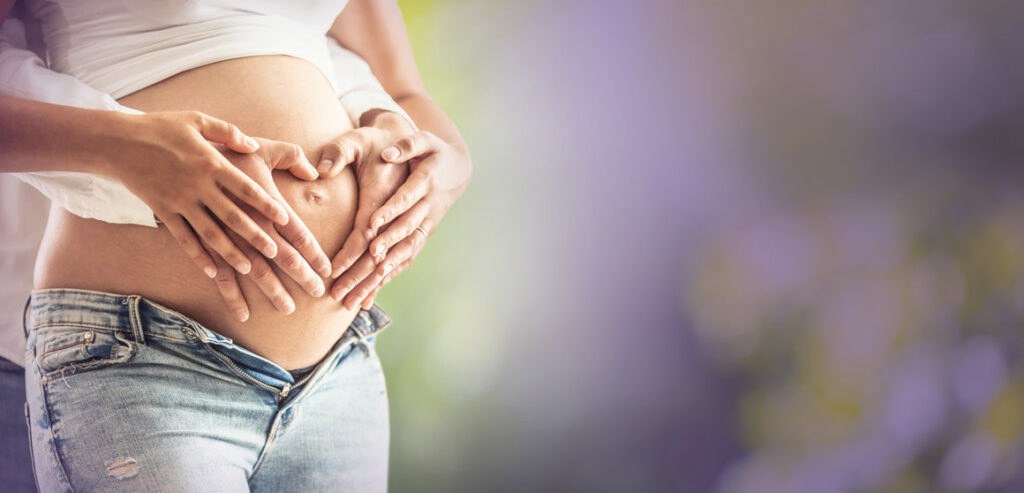What is an IUD? Everything You Need to Know
An IUD, or intrauterine device, is a small, T-shaped contraceptive device inserted into the uterus to prevent pregnancy. It offers highly effective, long-term birth control with the added benefit of immediate fertility restoration upon removal. Visit Dr. Michelle Trandai MD, OBGYN to discuss the pros and cons of determining if an IUD is the right birth control option. For more information, contact us or schedule an appointment online. We are conveniently located at 5449 N Broadway, Chicago, IL 60640.


Table of Contents:
What is the best intrauterine device?
Can you get pregnant after an intrauterine device?
What are the immediate effects of an IUD insertion?
What happens if you don’t get an IUD removed?
A tiny, T-shaped device called an intrauterine device (IUD) is inserted into the uterus to prevent pregnancy. It is among the most reliable methods of contraception, with a less than 1% failure rate. Dr. Michelle Trandai, a board-certified obstetrician and gynecologist practicing in Chicago, frequently provides and removes this device for her patients. She emphasizes that no contraception method is 100% effective. Once an IUD is removed, its contraceptive effects cease almost immediately, meaning your fertility can return to its normal levels rapidly. IUDs come in two main types:
1. Copper IUD (non-hormonal): This type of IUD, such as ParaGard, uses copper to prevent pregnancy. By destroying sperm and inhibiting conception, copper functions as a spermicide. Copper IUDs can be effective for up to 10-12 years.
2. Hormonal IUD: This type, including brands like Mirena, Skyla, Liletta, and Kyleena, releases a small amount of progestin hormone into the uterus. The hormone thickens the cervical mucus to block sperm and sometimes prevents ovulation.
Dr. Trandai explains that most women can conceive within the first year after an IUD removal. Some studies suggest that the ability to conceive may return immediately after removal. However, this timeline can vary greatly from woman to woman, depending on factors such as age, overall health, menstrual cycle regularity, and the presence of any reproductive health issues.
Risks of Pregnancy After IUD Removal: Dr. Trandai informs her patients that although using an IUD doesn’t increase the risk of infertility or complications during future pregnancies, some potential risks should be considered:
● Ectopic pregnancy: This can be harmful and requires prompt medical intervention. It happens when the fertilized egg implants outside of the uterus.
● Preterm labor and low birth weight: Women who conceive within the first few months after IUD removal may have an increased risk of delivering prematurely or having a low birth weight baby.
If you’re not ready to get pregnant after an IUD removal, Dr. Trandai recommends using another form of birth control right away. Options include birth control pills, patches, rings, or condoms. Always consult with Dr. Trandai about the best contraceptive method for you. She can provide advice based on your personal medical history, lifestyle, and family planning goals.
Several factors can influence how quickly fertility returns after IUD removal. Dr. Trandai will discuss these with you, including your age, duration of IUD use, individual hormonal response, and any underlying health conditions.
If you’ve been attempting to become pregnant for more than a year after IUD removal (or over six months if you’re over 35), it’s recommended to consult with Dr. Trandai. She may need to check for underlying fertility issues. If you do become pregnant, consulting with Dr. Trandai will be crucial to discuss any potential risks and ensure a healthy pregnancy.
At the medical practice of Dr. Michelle Trandai, we offer comprehensive women’s health services, including the provision of intrauterine devices (IUDs). IUDs are highly effective reversible contraception, and we take the time to educate our patients about what they can expect during and after the insertion process.
The immediate effects of IUD insertion can vary among different women, influenced by individual sensitivity and the specific type of IUD used. Most commonly, there is some level of discomfort during the procedure, which can range from mild cramping to more severe pain, similar to menstrual cramps. These effects are typically temporary and can be managed with over-the-counter pain relievers.
Additionally, it’s common for some women to experience spotting or light bleeding after IUD insertion. This is usually normal and should resolve within three to six months. If bleeding is heavy, prolonged, or persists beyond this time, it is crucial to contact our office for a consultation.
Rarely, an IUD may be removed from the uterus soon after it is inserted. This is most likely to occur if the IUD is not placed correctly or if the uterus contracts excessively. If you suspect this has happened, it is vital to consult with our team promptly.
Dr. Michelle Trandai, MD, a board-certified obstetrician and gynecologist based in Chicago, is committed to providing comprehensive women’s healthcare, including the management of intrauterine devices (IUDs). IUDs are a reliable, long-term contraceptive option that, like all medical devices, have a lifespan, after which they may become less effective and potentially pose health risks.
It is essential to note that an IUD may lose its effectiveness past its expiration date, increasing the chance of an unplanned pregnancy.
Although the odds are relatively low, the risk of complications, such as an ectopic pregnancy, a condition where the fertilized egg implants outside the uterus, is heightened. Ectopic pregnancies are serious medical conditions posing significant risks to women’s health.
Further, an IUD left in place beyond its lifespan may embed in or perforate the uterine wall, leading to persistent pain and making extraction challenging. In severe cases, it can cause uterine perforation, which may lead to infection or damage to nearby organs, often requiring surgical intervention.
Dr. Trandai, as a qualified healthcare provider, can help prevent these potential complications through regular check-ups to ensure the IUD remains safe and effective. If removal is necessary, Dr. Trandai and her team are equipped to handle the procedure, making it as straightforward and comfortable as possible.
Dr. Trandai’s commitment to patient-centered care ensures that she prioritizes your concerns and questions about your IUD. If you believe your IUD has reached its expiration date or if you are experiencing any complications, reach out to Dr. Trandai’s office promptly to schedule a consultation. Her expertise in women’s health will provide you with the necessary guidance and care. For more information, contact us or schedule an appointment online. We are conveniently located at 5449 N Broadway, Chicago, IL 60640. We serve patients from Chicago IL, Evanston IL, Ravenswood IL, Uptown IL, Lake View IL, Lincoln Park IL, Buena Park IL, Bowmanville IL, Boystown IL and Roscoe Village, IL.






